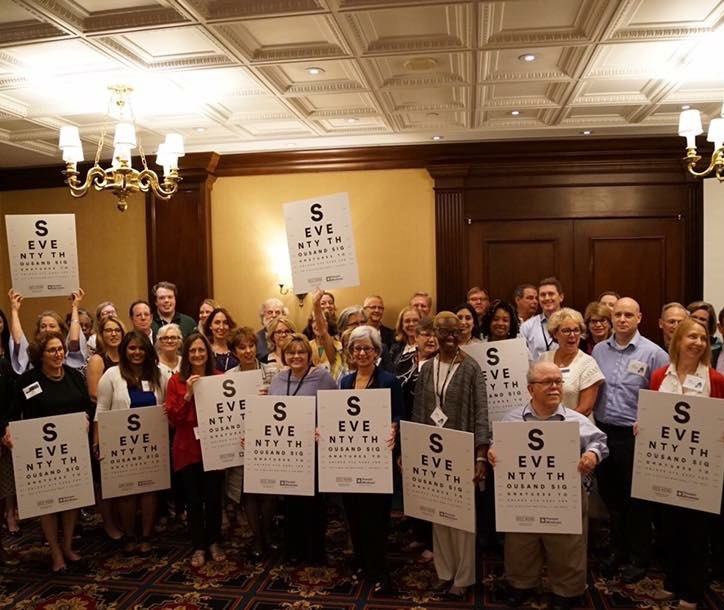Why Advocate for Eye Health?
Vision and eye health enables many aspects of daily living no matter your age, racial and ethnic background, or socio-economic circumstances. With healthy vision, we can engage with the world around us, learn in school, earn a productive living, and age independently with a high quality of life and life satisfaction. Public opinion polls conducted over the last 40 years indicate that Americans consistently fear losing their vision second only to fear of cancer.
And yet, vision and eye health is often an afterthought until the patient notices changes to their eyesight—changes that are likely permanent and irreversible.
Why then are so many Americans living with less than clear, healthy eyesight? If everyone knew that vision loss can be prevented through early detection and timely treatment, would that our national outlook on vision loss and eye disease? Unfortunately, understanding the risk of vision loss and eye disease—on the individual level, community level, and population level—is only part of the equation to preventing vision loss in our country.
In 2017, 93 million adults in the United States were at high risk of vision loss; however, only around 60% received an eye exam, which could help detect eye diseases before they result in vision loss. 8 million adults are not able to afford an eyeglasses despite needing them. Patients continue to face significant barriers in accessing eye care and treatment such as costs of treatment, lack of adequate coverage, lack of awareness of the importance of prevention and their own personal risk of vision loss, and gaps and inadequacies in the health care system that fail to promote equitable access to care.
Unfortunately, we are more likely to talk about vision loss and eye disease after it has happened. We don’t talk enough about it before it happens and how to prevent it. We tend to collectively accept vision loss as inevitable— the consequence of chronic disease, problems in childhood development, or inevitable as one ages.
Prevent Blindness exists to disprove these narratives around vision loss and eye disease. We advocate for policies that seek to improve how Americans can access eye care treatments that are necessary and right for them, and our work consistently focuses on how to break down barriers that keep patients from accessing the care they need. Advocacy for vision and eye health is so important to ensure that these misconceptions are reversed and that policies make it easier for patients and their families to access the eye care that they need to live their lives with healthy vision and eyesight.

